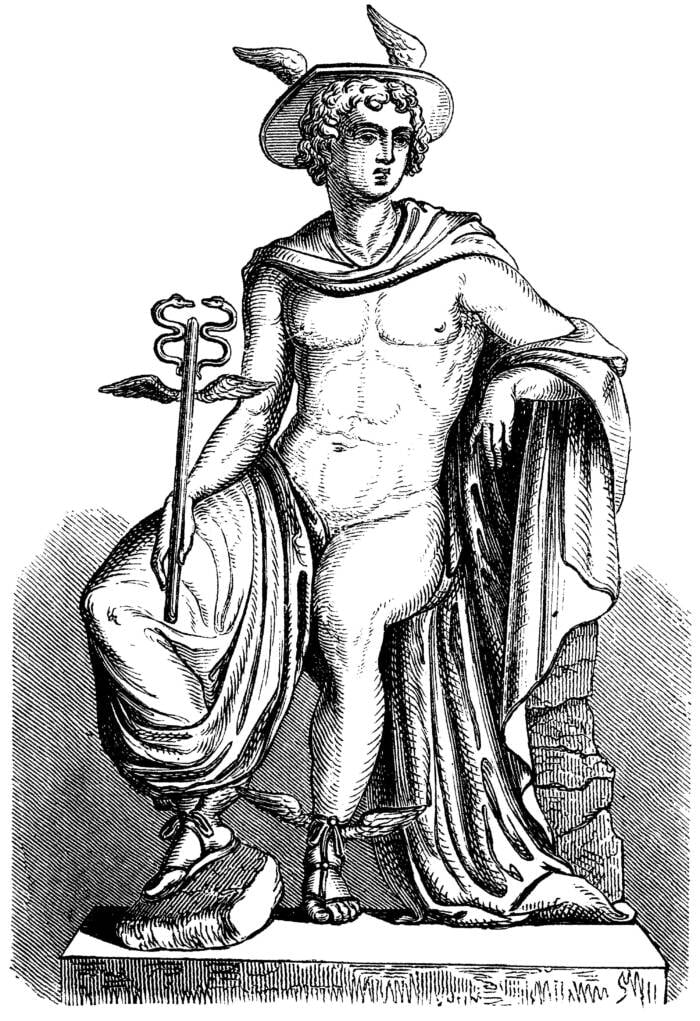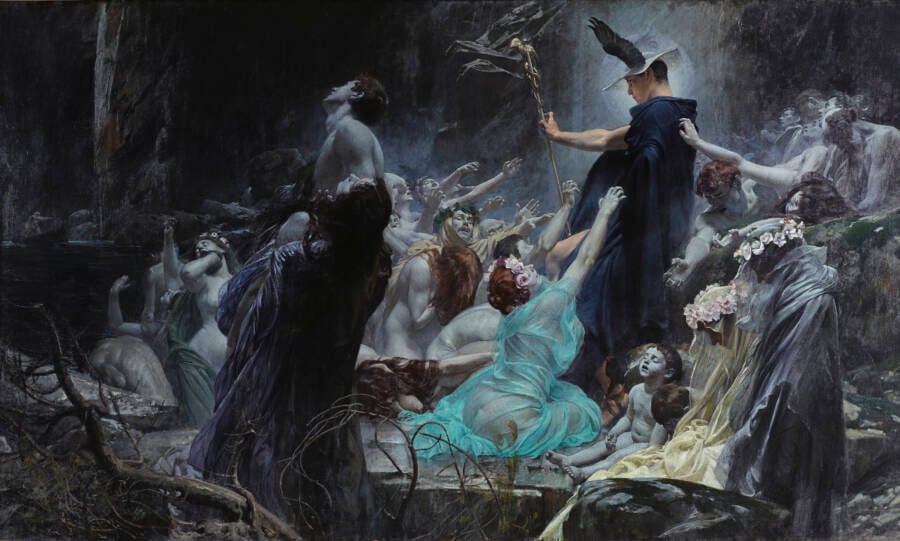The Olympian Gods Of Greece: Hermes, The Divine Herald

Quagga Media/Alamy Stock PhotoThe Olympian god Hermes, god of travelers, merchants and shepherds, known as Mercury to the Romans.
Hermes, the fleet-footed messenger of the Greek gods, was known for his quick wit, charm, and versatility. Hermes primarily served as the herald and emissary for Zeus, king of the 12 Olympians, facilitating communication between the heavens and the Earth, though he also served as a protector of travelers, merchants, and thieves. In fact, some have cited Hermes as a master thief himself.
Born to Zeus and the nymph Maia in a cave on Mount Cyllene, Hermes was a precocious infant who, mere hours after his birth, embarked on his first adventure, in which he famously stole the cattle of Apollo, cleverly reversing their hooves to confuse their tracks. When Apollo discovered the theft, Hermes skillfully negotiated his way out of trouble by inventing the lyre and trading it to his brother.
As the patron of boundaries and the travelers who cross them, Hermes was often depicted wearing winged sandals known as talaria and a winged cap called a petasos, symbolizing his ability to move swiftly and freely between the worlds of mortal and divine.
He also carried the caduceus, a staff entwined with two serpents, which today is commonly associated with the medical profession, particularly by the United States Medical Corps, Navy Pharmacy Division, and the Public Health Service.
Hermes’ role as a guide extended to the underworld. He was also known as Psychopomp, the conductor of souls to the afterlife, helping the dead make their transition from the living world.

Public DomainSouls on the Banks of the Acheron by Adolf Hirémy-Hirschl, 1898, depicting Hermes in the underworld.
Hermes’ cunning and versatility featured prominently in many myths about the Greek gods. He was often the go-to god for Zeus’ more delicate missions — ones that required tact, discretion, or a clever ruse. He was instrumental in many key events of Greek mythology, such as leading Priam, king of Troy, to Achilles to collect the body of his son Hector.
In festivals and cults, Hermes was honored as the protector of herds, gymnasia, and markets. His worship was widespread, celebrated by the Hermaia, a festival that involved athletic competitions, and offerings of incense, honey, cakes, and animal sacrifices.
Furthermore, Hermes was honored via the building of various herms: stone pillars placed at boundaries, crossroads, and doorways to serve both as protective symbols and objects of veneration. Those who passed these pillars by often adorned them with garlands or anointed them with oil to gain favor with Hermes, one of the most widely honored of the 12 Olympian gods of ancient Greece.





